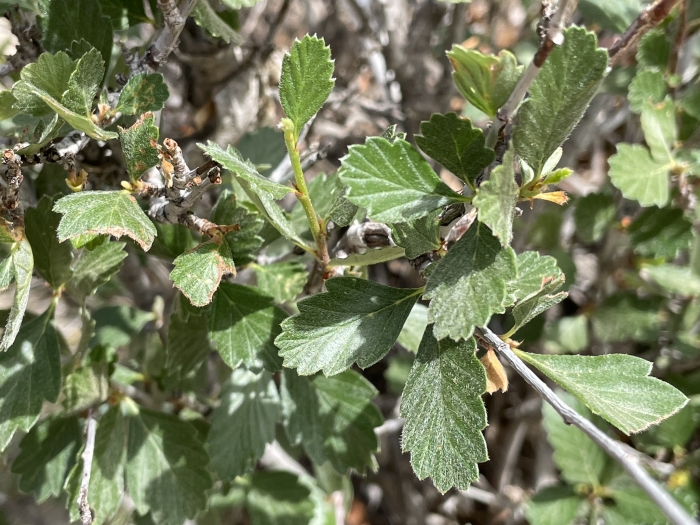Alder-Leaf Mountain-Mahogany
(Cercocarpus montanus)
Alder-Leaf Mountain-Mahogany (Cercocarpus montanus)
/
/

Bobby McCabe
CC BY 4.0





















































Estimated Native Range
Summary
Alder-Leaf Mountain-Mahogany is valued for its drought tolerance and ability to thrive in poor soils, making it an excellent choice for xeriscaping and naturalistic plantings in arid regions. It is also used for erosion control and as a windbreak due to its dense growth habit. In cultivation, it requires minimal maintenance, thriving in full sun with low water needs and well-drained soils. While it is not commonly afflicted by diseases, it can suffer from root rot if overwatered. This species is not known for aggressive roots or significant pest issues. It is not typically invasive when grown outside its native range, but gardeners should always monitor and manage plants to prevent unwanted spread.CC BY-SA 4.0
Plant Description
- Plant Type: Shrub, Tree
- Height: 8-12 feet
- Width: 4-8 feet
- Growth Rate: Slow
- Flower Color: N/A
- Flowering Season: Spring
- Leaf Retention: Deciduous
Growth Requirements
- Sun: Full Sun
- Water: Low
- Drainage: Fast, Medium
Common Uses
Bee Garden, Bird Garden, Butterfly Garden, Deer Resistant, Drought Tolerant, Erosion Control, Fire Resistant, Fragrant, Low Maintenance, Street Planting
Natural Habitat
native to the semi-arid regions of the Mountain West and Great Plains of the United States, California, and Northern Mexico
Other Names
Common Names: Alderleaf Mountain Mahogany , Alder-Leaf Cercocarpus , True Mountain-Mohagany
Scientific Names: Cercocarpus betuloides , Cercocarpus montanus , Cercocarpus montanus var. montanus , Cercocarpus flabellifolius , Cercocarpus montanus var. flabellifolius , Cercocarpus parvifolius var. hirsutissimus , Cercocarpus parvifolius var. breviflorus , Cercocarpus parvifolius var. minimus
GBIF Accepted Name: Cercocarpus montanus Raf.